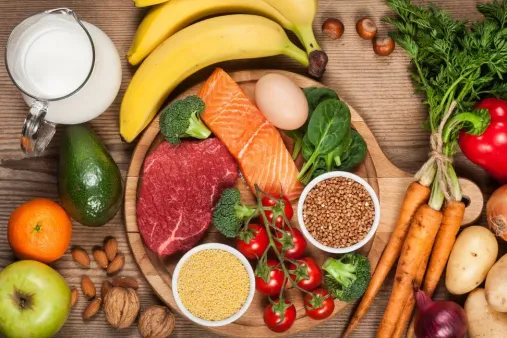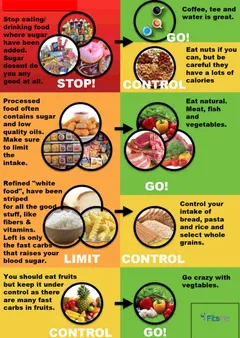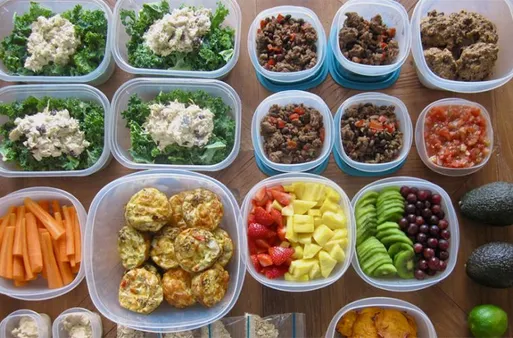Table of Contents
Calisthenics is a form of exercise that uses bodyweight as resistance. It's a great way to build strength, muscle, and flexibility, and it can be done anywhere, anytime. But did you know that nutrition is just as important for calisthenics as it is for any other type of exercise? In this article, we'll discuss the best calisthenics nutrition plan to help you reach your fitness goals. Whether you're just starting out or you're a seasoned pro, read on for tips on what to eat, when to eat, and how much to eat to fuel your calisthenics workouts and maximize your results. As always, before making any changes to your diet, consult a qualified healthcare professional for personalized advice. Also, for helpful meal plan, check out the rest of the fitness articles on our website!
The In-Depth Guide to Calisthenics Nutrition: Fueling Your Body for Peak Strength and Performance
Nutrient | Amount |
|---|---|
Protein | 1.6-2.2 grams per kilogram of body weight |
Carbohydrates | 4-6 grams per kilogram of body weight |
Fat | 1-1.2 grams per kilogram of body weight |
I. Calisthenics Nutrition: Fueling Your Body for Optimal Performance
Calisthenics, a form of bodyweight training, demands a balanced and well-rounded nutritional approach to support muscle growth, recovery, and overall performance. Whether you're a seasoned athlete or just starting out, understanding the specific nutritional needs of calisthenics is crucial for unlocking your full potential.
Macronutrient Requirements for Calisthenics Athletes
Macronutrients play a pivotal role in fueling your body for calisthenics. Here's a breakdown of the recommended daily intake:
Nutrient | Amount |
|---|---|
Protein | 1.6-2.2 grams per kilogram of body weight |
Carbohydrates | 4-6 grams per kilogram of body weight |
Fat | 1-1.2 grams per kilogram of body weight |
Related: The Best Calisthenics Supplements and Nutrition
Hydration and Recovery Strategies
Proper hydration is essential for calisthenics athletes. Aim to drink around 8-10 glasses of water per day, especially before and after training sessions.
- Electrolyte-rich beverages, such as sports drinks or coconut water, can help replenish electrolytes lost through sweat.
- Recovery involves rest and replenishment. Get sufficient sleep and allow your muscles time to repair and rebuild.
- Stretching and foam rolling can promote flexibility, reduce muscle soreness, and aid in recovery.
Related: The Most Common Calisthenics Mistakes and How to Fix Them
Calisthenics Nutrition: Fueling Your Body for Optimal Performance
II. Macronutrient Needs for Calisthenics Athletes
Protein
Protein is essential for building and repairing muscle tissue. Calisthenics athletes need to consume 1.6-2.2 grams of protein per kilogram of body weight each day. Good sources of protein include lean meats, poultry, fish, eggs, dairy products, and beans.
Here are some tips for getting enough protein in your diet:
- Eat a variety of protein sources throughout the day.
- Include protein in every meal and snack.
- Consider using a protein supplement if you're struggling to get enough protein from food alone.
Learn more about calisthenics supplements and nutrition
Carbohydrates
Carbohydrates provide energy for your muscles. Calisthenics athletes need to consume 4-6 grams of carbohydrates per kilogram of body weight each day. Good sources of carbohydrates include whole grains, fruits, vegetables, and legumes.
Here are some tips for getting enough carbohydrates in your diet:
- Eat a variety of carbohydrate sources throughout the day.
- Choose whole grains over refined grains.
- Include carbohydrates in every meal and snack.
Learn more about calisthenics exercises and variations
Fat
Fat is essential for hormone production and cell function. Calisthenics athletes need to consume 1-1.2 grams of fat per kilogram of body weight each day. Good sources of fat include olive oil, avocados, nuts, and seeds.
Here are some tips for getting enough fat in your diet:
- Use healthy fats in cooking and salad dressings.
- Include nuts and seeds in your snacks.
- Choose fatty fish over lean fish.
Nutrient | Amount |
|---|---|
Protein | 1.6-2.2 grams per kilogram of body weight |
Carbohydrates | 4-6 grams per kilogram of body weight |
Fat | 1-1.2 grams per kilogram of body weight |
Macronutrient Needs for Calisthenics Athletes
III. Hydration and Recovery Strategies
Staying hydrated is crucial for calisthenics athletes. Water helps to regulate body temperature, lubricate joints, and transport nutrients to muscles. Aim to drink eight glasses of water per day, and more if you're exercising or sweating heavily. You can also replenish electrolytes by drinking sports drinks or coconut water.
After a workout, it's important to recover properly to allow your muscles to repair themselves. This means getting enough rest, eating a healthy diet, and stretching. You can also speed up recovery by using foam rolling or massage to help reduce muscle soreness.
Hydration Tips | Recovery Tips |
|---|---|
Drink eight glasses of water per day | Get enough rest |
Replenish electrolytes with sports drinks or coconut water | Eat a healthy diet |
Use foam rolling or massage to reduce muscle soreness | Stretch |
Here are some additional tips for staying hydrated and recovering from calisthenics workouts:
- Drink water before, during, and after your workouts.
- Avoid sugary drinks, as they can dehydrate you.
- Eat fruits and vegetables, which are high in water and electrolytes.
- Take breaks during your workouts to cool down and rehydrate.
- Listen to your body and rest when you need to.
By following these tips, you can stay hydrated and recover properly from your calisthenics workouts, which will help you to perform at your best.
Related posts:
Hydration and Recovery Strategies
IV. Supplements for Calisthenics
Calisthenics athletes have unique nutritional needs because of the demanding nature of their training. While a healthy diet is the foundation of any fitness regimen, certain supplements can help calisthenics athletes maximize their performance and recovery. Here are a few supplements that may be beneficial for calisthenics athletes:
- Creatine: Creatine is a natural substance that helps increase muscle strength and power. It can be especially beneficial for calisthenics athletes who perform explosive movements like plyometrics and sprints.
- BCAAs: BCAAs (branched-chain amino acids) are essential amino acids that are important for muscle growth and recovery. They can help reduce muscle soreness and promote faster recovery after workouts.
- Beta-alanine: Beta-alanine is a non-essential amino acid that helps buffer lactic acid in the muscles. This can help reduce muscle fatigue and allow athletes to train harder for longer.
- Glutamine: Glutamine is an amino acid that is involved in muscle recovery and immune function. It can help reduce muscle soreness and promote faster recovery after workouts.
- Fish oil: Fish oil is a good source of omega-3 fatty acids, which have anti-inflammatory properties. It can help reduce muscle soreness and promote faster recovery after workouts.
Supplement | Benefits |
|---|---|
Creatine | Increase muscle strength and power |
BCAAs | Promote muscle growth and recovery |
Beta-alanine | Reduce muscle fatigue |
Glutamine | Reduce muscle soreness and promote faster recovery |
Fish oil | Reduce muscle soreness and inflammation |
It's important to note that supplements should not be used as a substitute for a healthy diet. Calisthenics athletes should make sure to eat a balanced diet that includes plenty of protein, carbohydrates, and healthy fats. Supplements can be a helpful addition to a healthy diet, but they should not be used as a replacement for whole foods.
If you are considering taking any supplements, it is important to talk to your doctor first. This is especially important if you have any health conditions or are taking any medications.
Related posts: The Best Calisthenics Supplements and Nutrition, How to Get Started with Calisthenics as a Beginner
Supplements for Calisthenics
V. Conclusion
Calisthenics nutrition is an essential part of any calisthenics routine. By eating a healthy diet that is rich in nutrients, you can give your body the building blocks it needs to build muscle, recover from workouts, and perform at your best. Remember, the key to success is consistency. Make sure to eat a healthy diet that is rich in nutrients every day, and you will be on your way to achieving your calisthenics goals.